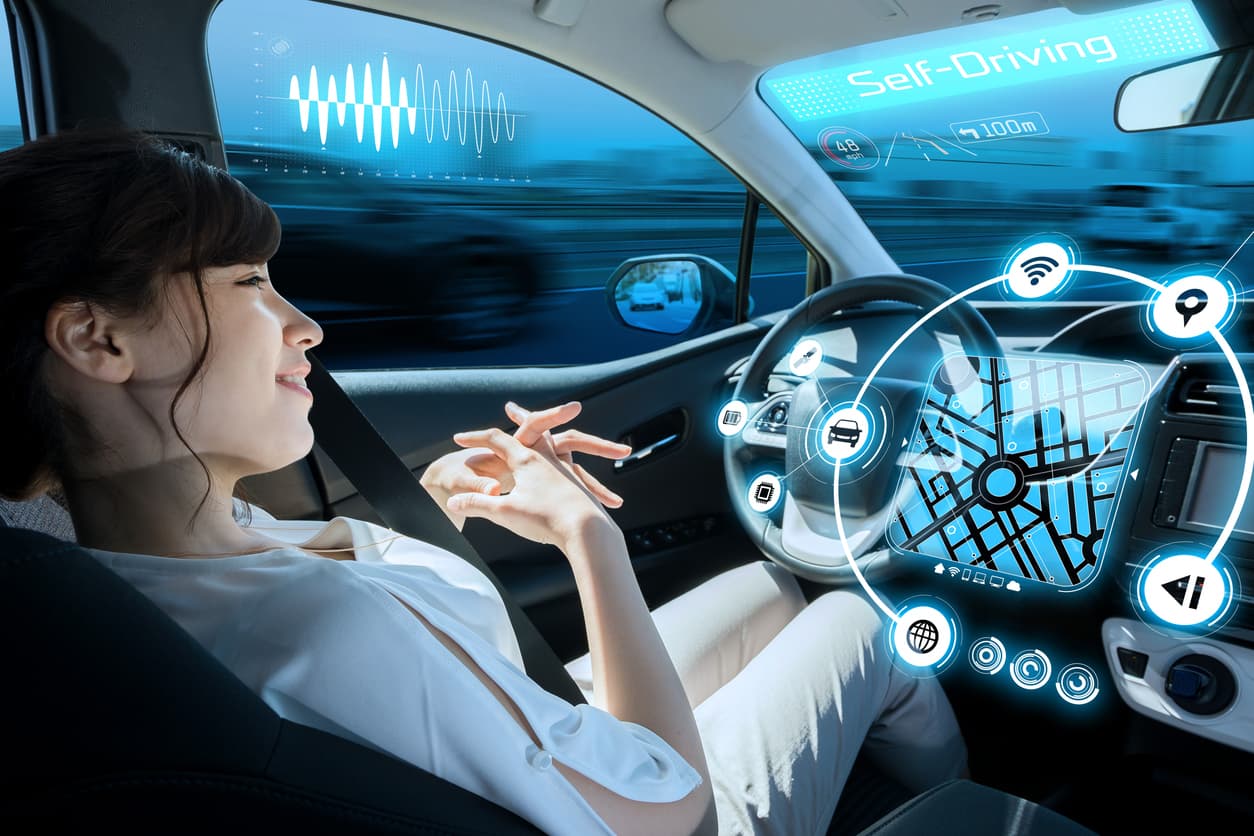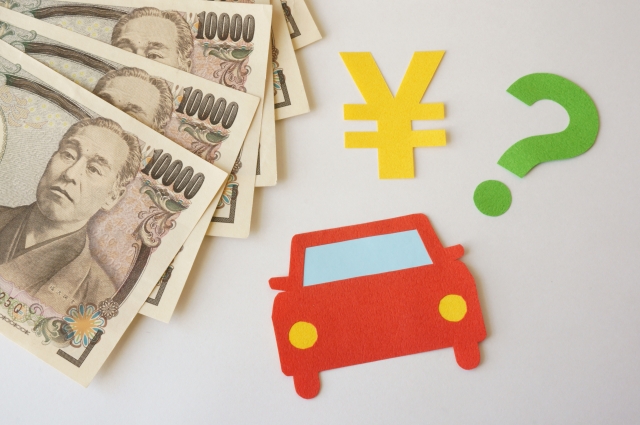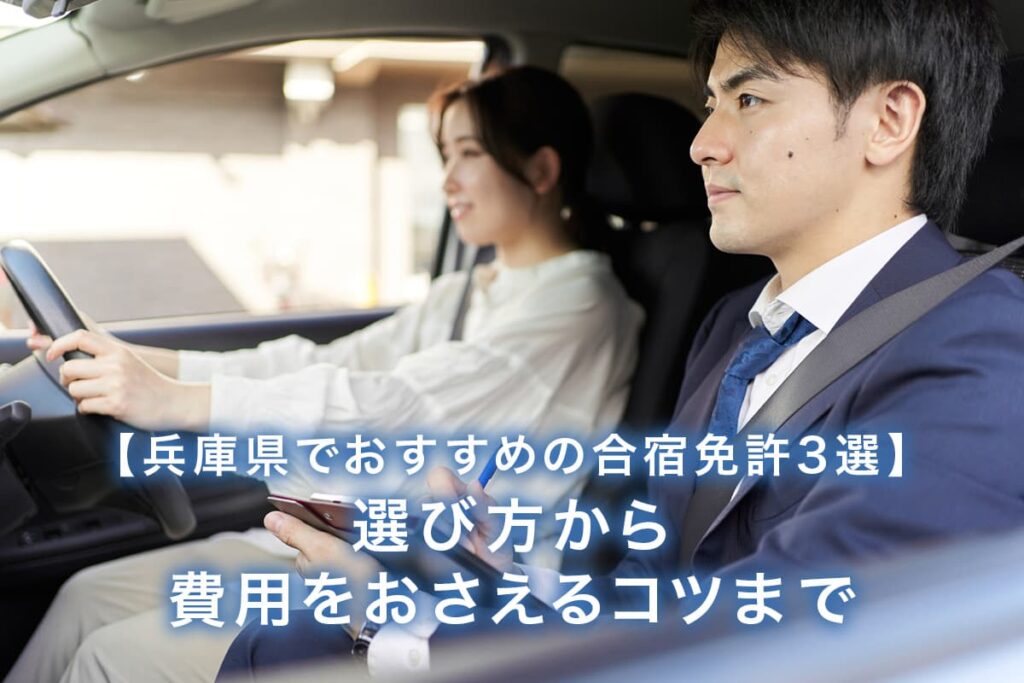「運転免許はいらない」「運転免許がなくても困らない」と考えている方も多くいるでしょう。しかし生活するエリアや就く職業によっては、運転免許が必要となる場合もあります。また、必要ないと考えていても想定外に必要性が出てくることもあるでしょう。
そこで本記事では運転免許を取得するメリット・デメリットの他、取得したほうが良い人・必要となるケースについて解説していきます。運転免許取得が必要になるかどうかについてぜひ参考にしてください。
目次
運転免許を取得するメリット
 運転免許を取得するメリットにはどのようなものがあげられるのでしょうか。ここでは次の2つのメリットについて説明していきます。
運転免許を取得するメリットにはどのようなものがあげられるのでしょうか。ここでは次の2つのメリットについて説明していきます。
- 緊急時に車を使える
- レンタカーを借りて出かけられる
このように運転免許がない場合と比べて、免許があったほうが良いと思うような場面に遭遇することがあります。それぞれのメリットについて詳しく見ていきましょう。
緊急性の高い状況に対応しやすい
日常生活で必要としない場合が多くても、緊急時に運転免許を取得していることで人を助けることができます。
例えば家族が倒れたり急に体調が優れなくなった場合です。一時を急ぐ場合は救急車で病院まで搬送してもらえますが、救急車を呼ぶほどではなくても急いで病院に行きたい場合などは運転できる人の存在に大いに助けられます。
特に深夜の場合は電車やバスもなく、タクシーが捕まりづらい場合もあるため、運転免許を取得していることで緊急時に役立てることができます。
レンタカーが利用できる
日常の通勤・通学では必要がない方も多いかもしれません。しかし、運転免許を取得していれば自分では運ぶのが難しいような家具・家電を購入した場合やたくさんの買い物をしても、レンタカーを借りて持ち帰ることも可能です。
さらに公共交通機関を使わずに自動車での旅行ができるというのも、大きなメリットです。小さな子供を連れて移動する際は、子供に合わせたペースで適宜休憩などができたほうが便利です。また、電車やバスの場合、騒いで周りに迷惑がかかってしまうこともあるでしょう。レンタカーを借りて出かけることで車内で騒いでも気にせず移動することが可能です。
その他にも自動車でしか行くことが困難な山や海・湖などの場所へ行くこともできます。
このように自分で自動車を購入するための費用や置くための場所の確保が難しい方でも、運転免許を所有していればレンタカーを借りての旅行ができ、行動の範囲がさらに広がります。
運転免許を取得するデメリット
 運転免許取得のメリットもありますが、良いことばかりではなく取得することのデメリットもあります。ここからは次の2つのデメリットについて説明していきます。
運転免許取得のメリットもありますが、良いことばかりではなく取得することのデメリットもあります。ここからは次の2つのデメリットについて説明していきます。
- 運転することで事故に遭うリスク
- 取得までに時間がかかる
このようなデメリットも踏まえたうえで、運転免許の取得について検討してみましょう。
自動車事故に遭うリスクが高くなる
運転免許を取得して自動車を運転することで、前方の自動車に衝突するなどの事故を起こす可能性があります。自分で運転しなくても自動車事故に遭うことはあるでしょう。
どんなに気をつけて運転していても他車による事故に巻き込まれることがあります。
万が一事故を起こした場合は、被害者への賠償が必要になることも。飲酒・危険運転などで過失の割合が大きい場合は、道路交通法上の責任が問われるため、免許取り消し・停止などの行政処分がされるなど重い責任を負うことになるでしょう。
自動車免許取得までに時間がかかる
自動車運転免許を取得する方法は、合宿免許と国家公安委員会に指定された教習所に通学する方法の2種類があります。合宿免許で取得するほうが時間もかからず、多くの場合2週間から3週間程度で取得可能です。一方、まとまった期間合宿して教習を受ける必要があるため、長期間休暇が取れない人は参加が困難です。
教習所を利用する場合は、都合の良い日時を自分で調整できるため、まとまった時間が作れない方でも通うことができます。しかし合宿免許よりも時間がかかり、平均で2〜3カ月かかります。
夏休みや冬休み・春休みなど学生が多く通うような長期休暇の場合は教習所も混雑します。そのため教習の予約が取りにくく、さらに期間がかかる可能性もあります。
合宿免許・教習所への通学、どちらの方法でも運転免許取得には一定の期間が必要になるため、余裕を持って計画を立てることが大切です。
免許のいらない自動運転について
 自動運転技術の実用化へ向けて自動車メーカーなどが開発をおこなっています。自動車にその技術が搭載されていくことで、運転操作の必要がなくなるかもしれません。
自動運転技術の実用化へ向けて自動車メーカーなどが開発をおこなっています。自動車にその技術が搭載されていくことで、運転操作の必要がなくなるかもしれません。
ここからは近年注目を浴びる自動運転技術において、免許が必要ない自動運転とはどのようなレベルであるかを解説します。
免許がいらないのはレベル4から
日本国内では自動運転技術のレベルを国際自動車技術会(SAE)の定義を用いてレベル0から5までの6段階にレベル分けをしています。レベル0とは自動運転技術の付いていないもので、レベル5は完全運転自動化で走行領域も限定されていません。まだそこまで開発が進んでいないこともあり、ここではレベル1から4までを詳しく見ていきましょう。
レベル1では運転支援技術が搭載された車を指していて、ハンドルもしくはアクセル・ブレーキ操作のどちらかを部分的に操作することができる車です。
レベル2はハンドルとアクセル・ブレーキ両方を操作する機能が付いていて、現在自動車メーカーの多くがレベル2までの技術を搭載したモデルを販売しています。
レベル3とはある特定の条件下でのみ運転操作のすべてがシステムでおこない、システムのトラブルなどでシステムが作動しない場合などに運転者が操作をおこなうというものです。
レベル4は高度自動運転と呼ばれる技術で、一定条件下ですべての運転操作をシステムがおこなうとされています。この内運転免許が必要なのはレベル1から3までです。
レベル4の車が開発されるのはまだ先
2021年3月に自動運転のレベル3が実用化されています。現在各メーカーで開発はしていて、フランスや中国では移動サービスや輸送サービスで実用化が進んでいます。
しかし、移動・輸送サービスはエリア内を限定してサービスの提供をすることができますが、自家用車の場合は明確に区別をすることが難しいです。
日本国内においてはレベル4の国内実現のための法改正が2023年4月1日に施行され、自動運転「レベル4」の公道走行が解禁されました。
一定の条件且つ限定的(過疎地での無人輸送サービスなどが対象)ですが、すべての運転をシステムに委ねることができ、無人運転も可能になります。
運転免許を取得したほうが良い人
 運転免許取得した場合のメリットやデメリットについて説明してきました。そのメリットやデメリットを踏まえたうえで、取得したほうが良い人について解説します。
運転免許取得した場合のメリットやデメリットについて説明してきました。そのメリットやデメリットを踏まえたうえで、取得したほうが良い人について解説します。
- 職種や生活エリアによっては必要になる可能性がある人
- 行動範囲を広げたい人
- 身分証明書代わりにしたい人
運転免許は必ずしも必要となる人ばかりではありませんが、上記に当てはまる場合は取得がおすすめです。
仕事や生活で必要になる可能性がある
すでに就業していて、今の仕事が運転免許を必要としない職種・仕事内容である場合には、現時点では運転免許は不要かもしれません。しかし、この先何らかの理由で転職をすることもあるでしょう。選んだ転職先の業務内容では車が必要になることもあります。
運転免許があることで転職先の選択肢が広がる可能性もあるため、今の仕事で使わないからといって「免許は不要」と決断してしまうのは考えものです。
またこれから就職をする予定の学生の場合、就業先で転勤になったり職種が変わってしまうこともあるかもしれません。交通の便が良い地域ばかりではなく、インフラが整っていない地域に住む場合は移動手段として車が必要になります。社会人になってからでは免許取得のための時間が確保しにくくなり、あらかじめ運転免許を持っていたほうがいざというときの利便性は高まります。
行動範囲を広げたい
学校や会社など普段の移動は徒歩やバス・電車で事足りるという方でも、車を使えば自分が思った以上に行動範囲が広がるかもしれません。
もちろんバスや電車で行けるところはたくさんありますが、自動車でしか行けない場所や公共交通機関よりも自動車のほうが便利な場所も多くあります。
公共交通機関を使う場合は時間も限られていますが、自動車なら好きな時間に好きな場所へ行くことが可能です。また、旅行の際にも飛行機とレンタカーを組み合わせたり、新幹線とレンタカーを組み合わせるなどして柔軟な旅行プランを組むことが可能です。
身分証明書として使いたい
運転免許証は身分証明書として使うことができます。
身分証明書が必要な場面としてあげられるのが、クレジットカードやスマートフォンの契約・役所での必要な書類の取得などです。身分証明書には本人の顔写真が付いているものを原則としていることが多いため、運転免許証ならあらゆるシーンで証明書として利用できます。
顔写真がついているものは身分証明書の提示は1点のみで良いことがほとんどです。その他1点のみの提示でも大丈夫な身分証明書として使用できるものは、パスポートやマイナンバーカードがあげられますが、普段から持ち歩いていないという人も多いものです。保険証や国民・厚生年金手帳なども身分証明書として利用できますが、2点以上の提示が必要なことが多いため、運転免許証のほうが便利に使えます。
想定外に運転免許が必要になるケース
 今までは運転免許のいらない生活をしていても突然必要となるケースがあります。
今までは運転免許のいらない生活をしていても突然必要となるケースがあります。
- 仕事を変えるとき
- 生活環境が変るとき
上記のように仕事や生活の環境の変化で、急に運転免許が必要になってくる場面があることを知っておきましょう。
仕事を変えるとき
企業に勤めていれば、一定期間経つと部署異動や転勤を伴う異動が発生することも珍しくありません。技術職や事務職で外出を伴わない職種から営業職への異動となり、業務自体に自動車の運転が必要とされることがあります。
また転職活動でも必要と感じる場合も出てくることがあります。運転を主な業務としておこなう運転手への転職だけではなく、営業回りに車を使う、車での搬入出作業が必要、など求人情報では運転免許を必須としている企業も多いです。
運転免許は他の難関資格と比べると取得しやすく、対応できる職種も広げられる便利な資格です。
生活環境の変化
生活環境の変化で運転免許が必要になることもあります。都心部のような交通の便が良い勤務地から自動車が必要な地方へ転勤する場合や、結婚を機に引越しをする場合などがその例です。
転勤先の最寄り駅やバス停が遠く、自動車でしか通えないような場合は自宅から自動車で通うことになるでしょう。あるいは新生活をスタートさせる住居の周辺に、生活に必要な施設やお店が少なければ、車を運転できると便利です。特に地方では自動車が主な移動手段であることが多く、実際運転免許を持っていない人が不便に感じた内容でも多くあげられます。
利便性が良い都会での生活においても、子供が生まれた場合や介護が必要になった場合、自身に病院通いが必要になった場合には、運転できたほうが便利なことがあります
運転免許がいらないという人が知りたい質問
 ここまで運転免許取得のメリットやデメリット・取得したほうが良い人や想定外に必要となるケースについて解説してきました。最後に運転免許はいらないと考えている人が疑問に感じやすいことをいくつか紹介します。
ここまで運転免許取得のメリットやデメリット・取得したほうが良い人や想定外に必要となるケースについて解説してきました。最後に運転免許はいらないと考えている人が疑問に感じやすいことをいくつか紹介します。
運転免許がいらない仕事は?
運転免許が必要ない仕事には次のようなものがあります。
- 製造業の作業員
- 小売店舗の販売員
- 営業職除くオフィス系
- IT系のエンジニア
- 飲食店の従業員
- 理美容師
- コールセンターのスタッフ
- 学校・塾の先生
バス・タクシーなどの運転手はもちろん、自動車で移動が必要な営業職や行き先が定期的に変わるような大工や建設業、食品などの品物を配達・納品する職業は当然運転免許が必要です。
しかし上記リストのように業務上自動車の運転が必要ない職種であれば、免許がなくても職に就くことも可能で、基本的に免許がないことで業務に支障をきたすこともありません。
運転免許不要で車の代わりになり得る乗り物は?
運転免許が不要でも移動手段に不自由しない人ばかりではありません。電動自転車やシニアカーを利用することもできます。
その他の手段としてあげられるのが電動モビリティです。電動モビリティは最高時速6キロであるため、自動車や自転車などの軽車両とは違い歩行者として扱われています。
この電動モビリティは免許も不要で、歩道はもちろんスーパーの中を走行することができる便利な乗り物です。
運転免許がいるかいらないかは長期的な視点で判断しよう
 ご自身で運転免許を持つことで緊急時に手助けができることや、自動車でしか行けないところへ出かけることできるのは大きなメリットです。
ご自身で運転免許を持つことで緊急時に手助けができることや、自動車でしか行けないところへ出かけることできるのは大きなメリットです。
一方、自動車を運転することで事故に遭うリスクが高くなることや運転免許取得までには時間がかかる、といったデメリットも存在します。
自動運転技術が発展し、運転免許がいらなくても自動車が運転できる時代がくるかもしれません。しかしまだしばらく時間はかかるでしょう。想定外に運転免許が必要になるケースも踏まえて、長期的な視点で運転免許の必要性を判断することが大切です。







